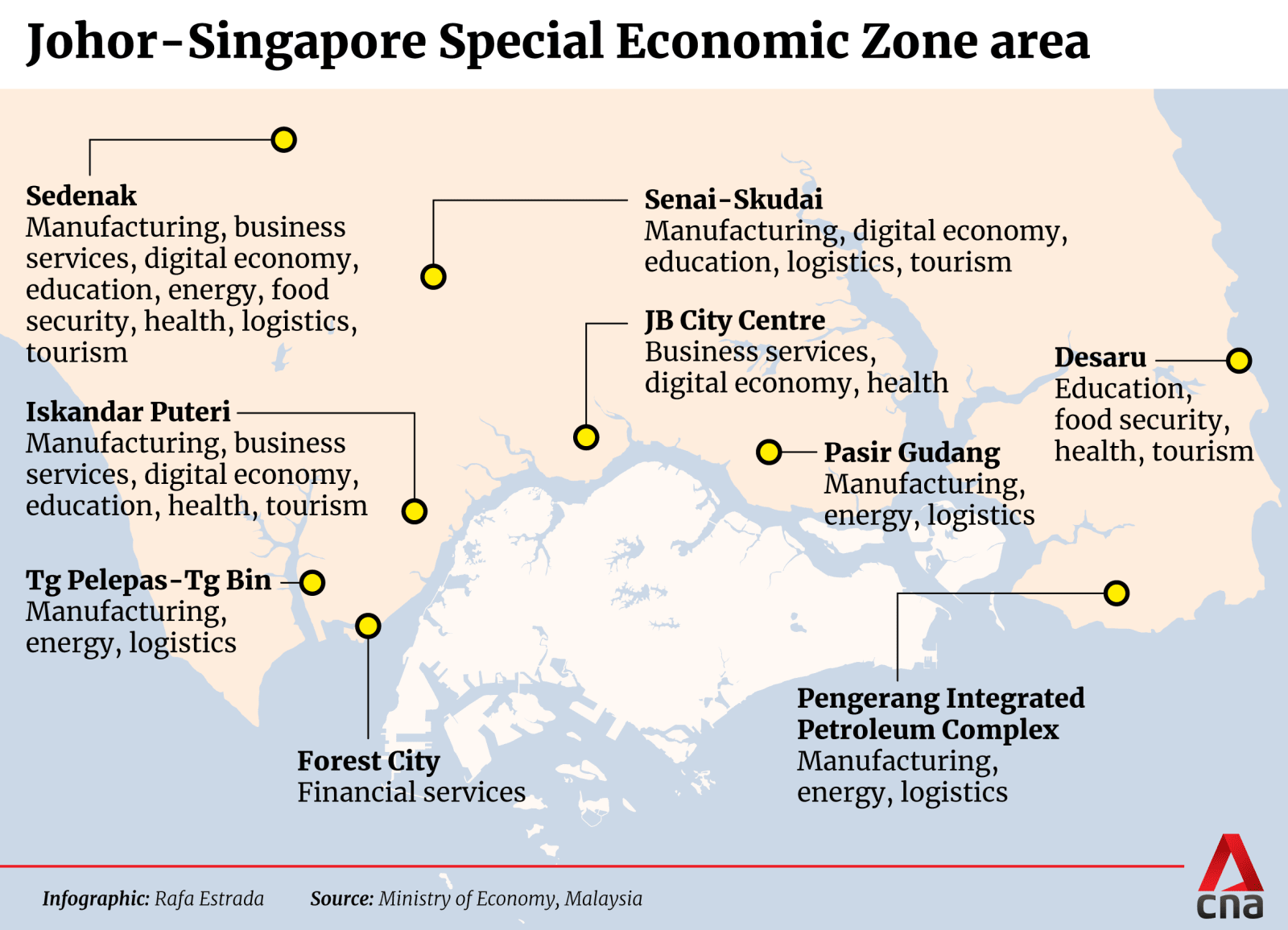The article summarizes key announcements from the 2nd Johor-Singapore Special Economic Zone (JS-SEZ) Joint Investment Forum, highlighting new measures to boost investment momentum and the significant capital already committed.

Investment & Commitment
Significant Investment: Singapore-based companies have committed over S5.5billion(US4.23 billion) in investments into the JS-SEZ in Johor since the Memorandum of Understanding (MOU) was signed in January 2024.
Cooperation: Singapore's Deputy Prime Minister Gan Kim Yong stressed that the JS-SEZ is a clear example of countries choosing "cooperation over contestation" and building on their complementary strengths: Johor's land and resources, and Singapore's capital and global connectivity.
Malaysia's Minister Tengku Zafrul Abdul Aziz announced several initiatives, mainly drawing from Malaysia's Budget 2026:
Fast-Track Approvals: Approval for manufacturing licences for non-sensitive industries within the SEZ's identified sectors will be granted within seven working days. A required "no objection letter" from the Johor state government will also be issued in the same timeframe.
SME Funding: An additional RM200 million (US$47.3 million) has been allocated under the Strategic Co-Investment Fund to co-invest with the private sector in high-impact projects by Malaysian Small and Medium Enterprises (SMEs) in the zone.
Talent Development: RM650 million is allocated via the Skills Development Fund Corporation to support talent development for roughly 25,000 trainees in key sectors like Artificial Intelligence (AI), electric vehicles, and semiconductors.
Investor Pass: The existing Investor Pass initiative has been expanded, offering eligible foreign investors a multiple entry visa valid for up to 12 months to reduce "friction for high-impact investors."
Streamlining: Both countries are focused on streamlining regulatory processes, improving the ease of cross-border flow of goods and professionals, and anchoring flagship projects in the SEZ's 11 identified economic sectors across its nine flagship areas.
Business Example: Global logistics firm Kuehne+Nagel (KN) was cited as a success story, leveraging a dual-location model where Singapore provides global connectivity for time-critical cargo, and Johor offers cost-effective, scalable fulfillment capacity. KN's experience suggests that digital customs processes and paperless trade are next areas for improvement.
The forum emphasized that the JS-SEZ is progressing well, with a focus on ease of doing business and inclusive growth for SMEs across the designated sectors of manufacturing, logistics, digital economy, energy, food security, and more.

 Japan
Japan